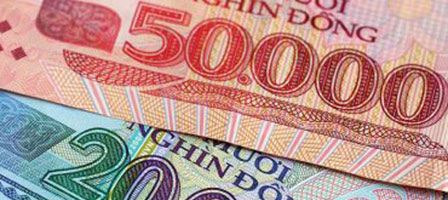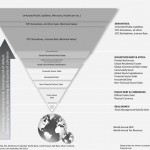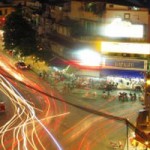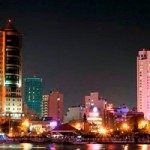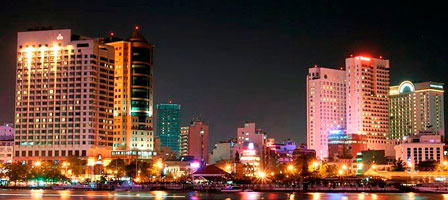The problem of bloated giants
Unlike its huge state-capitalist model China and its regional competitor Thailand, Vietnam runs a huge foreign trade deficit — $12 billion last year. And unlike them, its controlled currency is being devalued rather than rising in value. With inflation running at 12 per cent and interest rates for bank deposits held low, savers are fleeing the national currency, the dong, for US dollar bills and gold.
At the core of the problem is a policy of channelling resources into promoting huge state-owned groups, managed by bosses appointed usually for their party family origins and connections rather than competence, and given too much freedom to build their empires without adequate central oversight.
They have been favoured with government preference such as monopolistic privileges, plus unlimited access to cheap credit without much control over their headlong expansion, often into business areas where they have no experience.
The consequence has been the emergence of bloated giants loaded with money-losing or unproductive operations, which have deprived the thousands of small businesses in the private sector of the resources they need to expand. There are few private businesses of any size.
The Economist reported recently: “These corrupt and inefficient behemoths continue to gobble up and then squander a good share of the foreign investment and export earnings that come into the country.”
According to economic analyst Nguyen Quang A, the state-owned enterprises consume 40 per cent of national resources, yet deliver only a quarter of national output.
The economic crisis has been brought to a head by the spectacular financial crisis at the ambitious shipbuilder Vinashin, which last month defaulted on a $60 million capital repayment due on a $600 million foreign loan. Interestingly, the government for the first time refused to bail out one of its troubled children, although it did provide funds to ensure that the group’s employees were paid.
Moody’s, the credit rating agency, reacted by downgrading Vietnam’s sovereign debt. That makes it more difficult and expensive for the big state-owned enterprises to borrow abroad, and will force them to cut back on expansion – most of which favours, through widespread corruption, the newly-wealthy party-connected families.
Hanoi, comments The Wall Street Journal, “is reaping the consequences” of trying to use cheap credit to spur economic growth, while neglecting fundamental reforms.”
Among those necessary in addition to a crackdown on high-level corruption are imposition of financial discipline on the state giants and reductions in their privileges, major improvement in technical training, modernizing university education (less emphasis on Marxist-Leninist studies, and clamping down on fake qualifications), depoliticization of the legal system and modernization of the banking system.
The Vinashin event and its consequences could be the shock that drives the party leadership to institute radical changes, as it has done before. It may now realize that it must institute reforms if it can create the million additional jobs a year that they know must be created to accommodate the fast-growing labour force if they are to remain in power… and their families are going to continue enriching themselves.
Vietnam has a huge potential to attract foreign investment from multinational companies following the well-known “China Plus One” model – build a huge production source in China, because you have to be there, but develop at least one other in another attractive country, so you don’t totally depend on China.
Vietnam has already managed to attract major investors such as Canon, Samsung, Intel and Hon Hai. Interestingly enough, the biggest foreign investor by source country is not China but Taiwan, the mainland’s political rival.
Ironically, although Vietnam claims to be a Communist country, it practices a variety of savage capitalism. According to an excellent new book*: “The sick have to pay for healthcare, parents have to pay for schooling and the unemployed are left to fend for themselves.”
Clearly visible to visitors such as myself, the Vietnamese have all the qualities of commitment to hard work, thrift, education and determination to advance themselves that offer explosive potential for economic growth if only some of the deadweight of the exploitive party dictatorship were to be lifted from their necks.
this article is a continuation from – Vietnam: a Speculative Bet on the Future
and is followed by the final article – The shares: base-building for lift-off?
CopyRight – OnTarget January 2011 by Martin Spring
